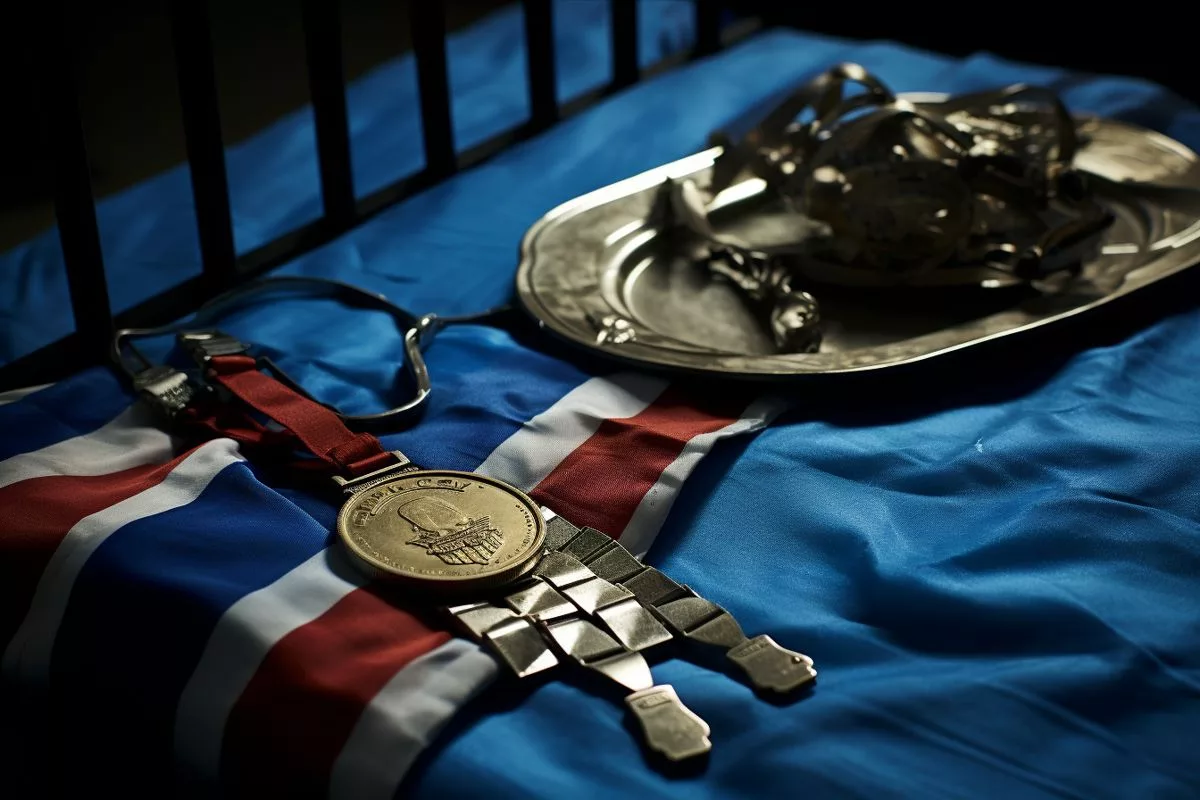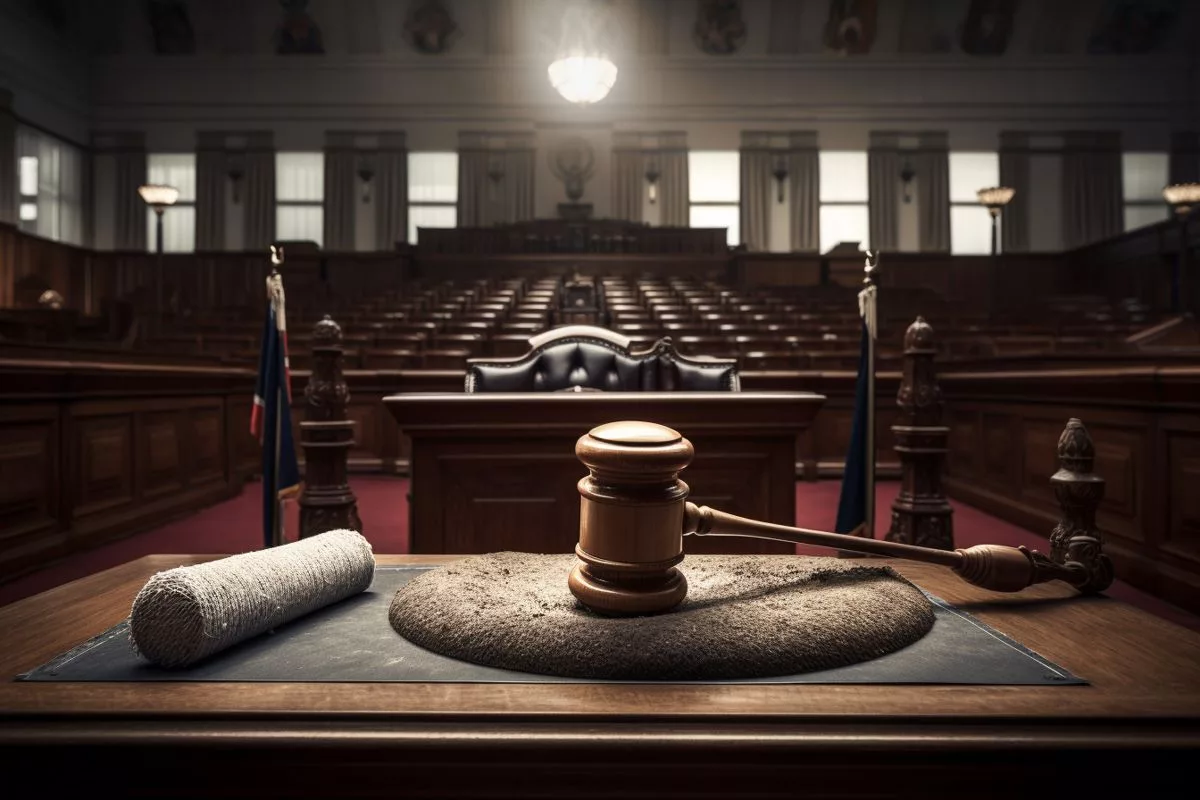Oscar Pistorius, a former Paralympic athlete once celebrated for his achievements, has been granted early parole with community corrections after being convicted of the murder of his girlfriend, Reeva Steenkamp, in 2013. Though his release has sparked controversy, it is part of an extensive rehabilitation program to promote his return to society. Pistorius was deemed a first-time offender with a supportive network despite his crime’s severity. His tale serves as a reminder of the repercussions of one’s deeds and elicits debates about justice, rehabilitation, and redemption.
Oscar Pistorius granted early parole with community corrections. Despite being recognized as a pioneer for disabled athletes, he was also a lawbreaker who devastated lives, but was deemed a first-time offender with a supportive network. The decision to grant parole may have sparked controversy, but it is a component of an extensive rehabilitation program to promote his return to society.
The Story of Oscar Pistorius
Oscar Pistorius, a name once celebrated for his Paralympic achievements, now bears the notorious label of a convicted murderer. The ex-elite athlete, amidst controversy, was given early parole last Friday, adding another chapter to a story that commenced almost eleven years ago when he tragically ended the life of his girlfriend, Reeva Steenkamp. This compelling narrative of crime, justice and repercussions has captivated the global audience since its inception.
The Decision and Controversies
The Department of Correctional Services (DCS), through an official announcement by spokesperson Singabakho Nxumalo, revealed Pistorius’s parole and its commencement date as January 5, 2024. His parole discussions transpired at Atteridgeville Prison, located in Pretoria’s western region, which has been Pistorius’s confinement zone. A meeting that spanned slightly less than an hour concluded that the prerequisites for his early release had been fulfilled.
Pistorius’s public perception is a paradox. He was once recognized by the sports world as a pioneer for disabled athletes, yet he is also a lawbreaker who plummeted from his pedestal following a crime that devastated lives. Regardless of his crime’s severity, Pistorius was deemed a first-time offender with a supportive network. As per Section 73 of the Correctional Service Act, his parole was approved.
However, this decision may have sparked controversy and evoked queries without undermining justice’s course. The parole process is not a standalone occurrence but a component of an extensive rehabilitation program. The objective is to rectify the transgressors and promote their return to society, which might involve a continuation of programs begun during incarceration.
The Journey of Rehabilitation and Redemption
Even though Pistorius received parole, he will not experience total freedom. Nxumalo highlighted that the ex-athlete would serve the rest of his sentence under community corrections‘ watchful eye. He would abide by specific parole terms until his sentence concludes.
This decision was not made in isolation. The parole board took into consideration June Steenkamp’s emotional turmoil, Reeva’s mother. June, still wrestling with the emptiness created by her daughter’s untimely death, indicated in her victim impact statement that she did not think Pistorius had truly rehabilitated.
Intriguingly, this was Pistorius’s second parole hearing in less than a year post his sentence of 13 years and five months. His initial parole bid in March was unsuccessful, as the detention period requirement was not met. A second hearing was arranged following his lawyer’s appeal to the constitutional court, claiming miscalculations in determining Pistorius’s parole eligibility. The court concurred that Pistorius was eligible for parole in March, contrary to the previously projected date of August 2024.
As we navigate the stormy seas of justice, rehabilitation and societal reintegration, Oscar Pistorius’s narrative continues to unfold. His tale serves as a potent reminder of the repercussions of one’s deeds, while concurrently eliciting crucial debates about the justice system, rehabilitation, and the road to redemption.
1. Who is Oscar Pistorius?
Oscar Pistorius is a former Paralympic athlete who became a convicted murderer after killing his girlfriend, Reeva Steenkamp, in 2013.
2. What is the controversy surrounding his early parole?
Despite his crime’s severity, Pistorius was deemed a first-time offender with a supportive network and granted early parole with community corrections. Some people believe that this decision undermines justice, while others argue that it is part of an extensive rehabilitation program to promote his return to society.
3. When did his parole discussions take place and where was he confined?
Pistorius’s parole discussions took place at Atteridgeville Prison, located in Pretoria’s western region, where he was confined. The decision was announced by the Department of Correctional Services spokesperson Singabakho Nxumalo on Friday.
4. What is the objective of the rehabilitation program that Pistorius is part of?
The objective of the rehabilitation program is to rectify the transgressors and promote their return to society. This might involve a continuation of programs begun during incarceration.
5. What will Pistorius’s parole entail?
Pistorius will serve the rest of his sentence under community corrections’ watchful eye and will abide by specific parole terms until his sentence concludes.
6. Was Pistorius eligible for parole before his recent release?
Yes, this was Pistorius’s second parole hearing in less than a year post his sentence of 13 years and five months. His initial parole bid in March was unsuccessful, as the detention period requirement was not met. A second hearing was arranged following his lawyer’s appeal to the constitutional court, claiming miscalculations in determining Pistorius’s parole eligibility. The court concurred that Pistorius was eligible for parole in March, contrary to the previously projected date of August 2024.








